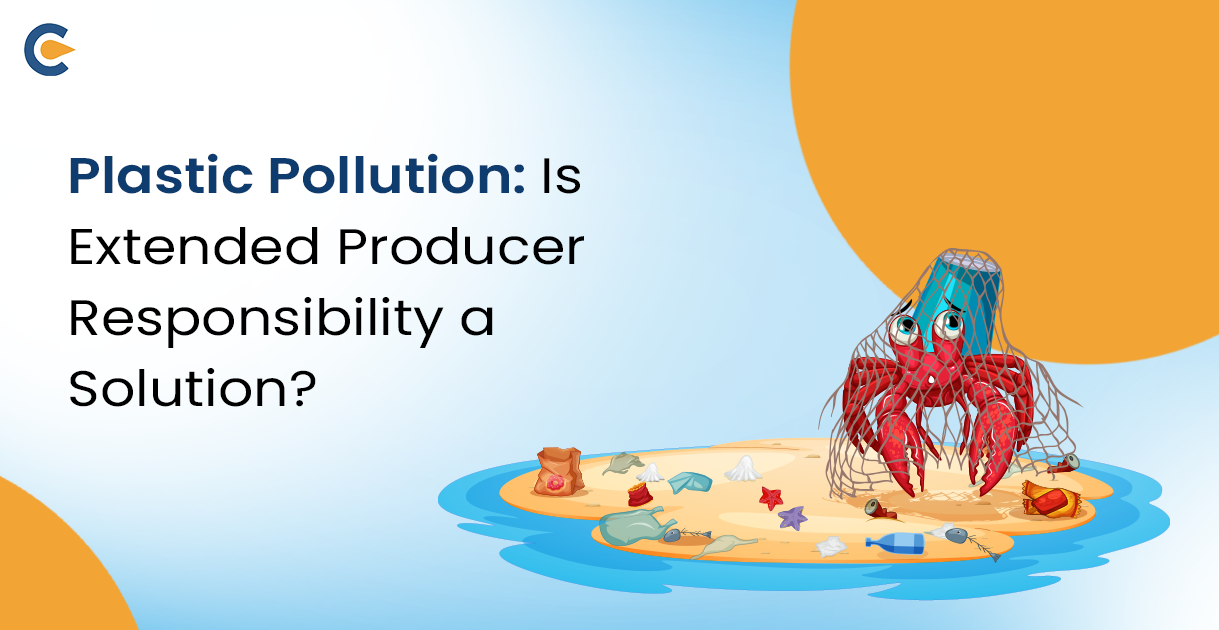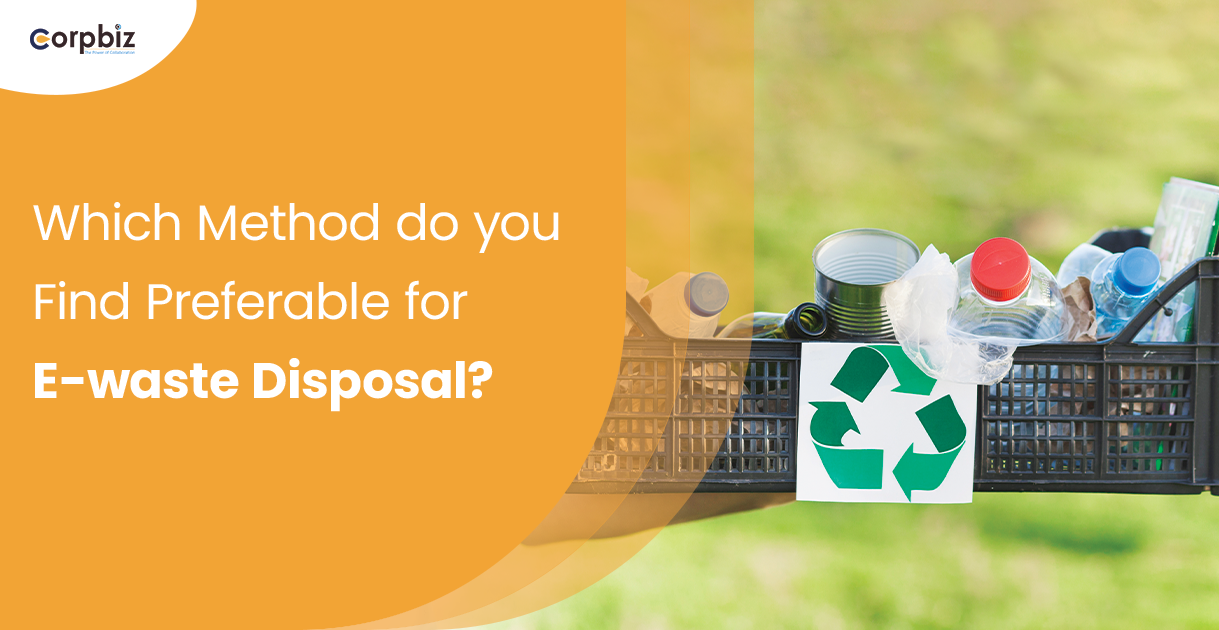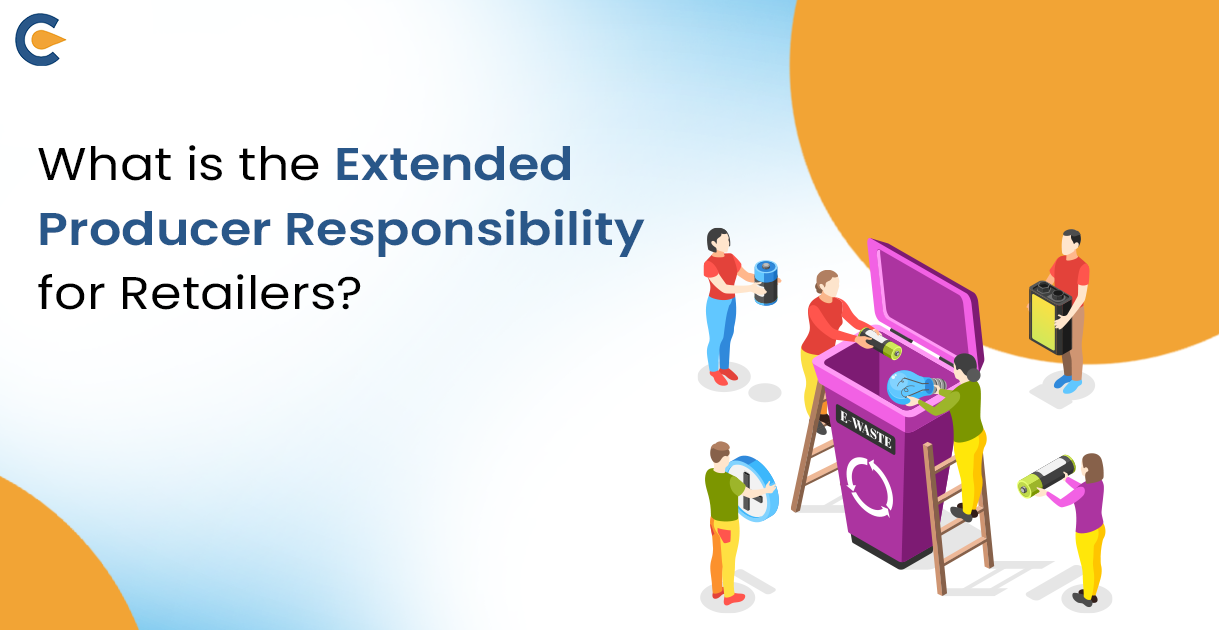The idea of extended producer responsibility is to transfer the cost of managing plastic waste from taxpayers and governments to the businesses that make and market plastic goods. The concept is straightforward: individuals who produce plastic goods ought to be accountable for the full lifetime of those goods, from manufacture to disposal.
How does EPR work to tackle plastic pollution?
An approach to waste management known as extended producer responsibility aims to transfer the duty of handling and discarding post-consumer goods, especially packaging materials, from end users to manufacturers. EPR functions by holding producers and manufacturers financially and legally liable for the whole lifespan of their products, with a focus on the post-consumer phase in the context of managing plastic waste.
Producers must assume responsibility for the collection, recycling, and appropriate disposal of plastic items they put into the market under an Extended Producer Responsibility framework. This entails creating and putting into place effective waste management systems that respect the environment. Producers have two options: they may work with already-existing systems, such as waste management firms or nearby recycling centres, or they can build their own infrastructure for collection and recycling.
Governments usually pass laws requiring producers to reach certain recycling goals and make financial contributions to the waste management process in order to enforce this obligation. The financial component frequently consists of levies or fees imposed on manufacturers according to the quantity and kind of packaging materials they release onto the market.
In addition to pushing manufacturers to use environmentally friendly designs and materials for packaging, Extended Producer Responsibility also fosters technological innovation in recycling. Encouraging the reuse and recycling of plastics reduces the total need for new raw materials and lessens the environmental impact of plastic production, therefore fostering a more circular economy.
Why does Extended Producer Responsibility matter?
Let us now understand why the extended producer responsibility matters:
- Encourages Sustainable Structure:
EPR pushes businesses to consider recycling when designing their goods. By using a more sustainable design approach, plastic items may have a less negative environmental impact.
- Lessens the Burden on Landfills:
EPR seeks to lessen the quantity of plastic waste dumped in landfills by making manufacturers accountable for the whole lifespan of their goods. This will help to create a more sustainable waste management system.
- Encourages Circular Economy:
EPR encourages the shift from a linear economy (manufacture, use, disposal) to a circular economy, in which items are made to be recycled and reused in order to reduce the need for fresh resource extraction.
- Reduces the Financial Strain on Governments:
By offering an alternate source of revenue for waste management, EPR lessens the financial strain on taxpayers and governments. This makes recycling initiatives more ubiquitous and successful.
What are the Advantages of EPR?
Some of the advantages of EPR are:
1. Opportunities for International Trade
Indian companies involved in recycling and sustainable plastic management might look into foreign trade prospects as more nations implement EPR programs and strict environmental regulations. Increased income and foreign exchange profits may result from this.
2. Lowering of the Cost of Pollution
The financial burden of pollution remediation and environmental restoration can be reduced with the aid of Extended Producer Responsibility initiatives by reducing the quantity of plastic waste that ends up in landfills and waterways. The government may be able to save money as a result.
3. Customer Education and Modification of Behavior
EPR initiatives promote customer involvement in waste separation and recycling. More sustainable consumption habits and lower waste disposal costs can result from an informed and conscientious customer base.
4. Secondary Source of Raw Materials
Recycled plastic materials are consistently produced by EPR projects. Supply chains that are reliable and perhaps economical are advantageous to industries that employ recycled plastics as their primary raw material.
5. Creation of Jobs
Infrastructure for collection and recycling is required by Extended Producer Responsibility schemes. This boosts employment in the recycling, sorting, and garbage collecting sectors. Extended Producer Responsibility can boost employment rates in a nation like India, which has a sizable labour base.
6. Efficiency of Resources
The requirement for new plastic manufacture is decreased when plastic materials are recycled through Extended Producer Responsibility initiatives. This may result in resource savings, which would lower expenses for companies like the packaging sector that depend on plastic materials.
7. Entrepreneurship and Innovation
Entrepreneurship and waste management technology innovation might be stimulated by the need to create creative and effective ways to recycle and manage plastic waste under EPR initiatives. The development of a green industry sector may arise from this.
Professional Assistance with Corpbiz
Our professional specialists will assist you with paper work, and filing. Our commitment to accuracy and compliance guarantees that your Extended Producer is responsible. Compliance meets all legal criteria, and our dedicated support team is available to resolve your issues and answer any questions you may have. We provide thorough support with Extended Producer Responsibility certificates.
Frequently Asked Question
What do you mean by Extended Producer Responsibility (EPR)?
Extended Producer Responsibility (EPR) is a policy that holds producers liable for the whole life of their products, including disposal and transfers the burden of handling plastic waste from taxpayers to corporations.
How does EPR combat the pollution caused by plastics?
Producers must handle and dispose of post-consumer items, particularly packaging materials, in accordance with EPR. Producers are liable for collection, recycling, and appropriate disposal both financially and legally. Governments enact legislation, establish recycling targets, and provide financial support to enforce this.
Why is EPR important?
EPR fosters a circular economy, lessens the financial load on governments, and stimulates the production of sustainable products. Businesses are encouraged to take environmental responsibility, which leads to a more sustainable waste management system.
What advantages does EPR offer?
International commerce is made possible by EPR, which also reduces the cost of pollution cleanup, teaches consumers how to dispose of waste responsibly, supplies secondary raw materials, generates employment, and encourages resource efficiency and waste management innovation.
In what ways does EPR support the circular economy?
Through the creation of items that are recyclable and reusable, EPR encourages the transition from a linear to a circular economy. As a result, less new resource extraction is required, supporting sustainable resource management.
In what ways does EPR minimize the cost to governments?
EPR reduces the financial burden on governments and taxpayers by providing an alternate source of income for waste management. Recycling programs become more popular and effective as a result.
What chances does EPR present for global trade?
Indian businesses engaged in sustainable plastic management should investigate international trade opportunities as more countries implement EPR programs, which could result in more revenue and foreign exchange earnings.
How is the cost of pollution reduced by EPR?
EPR programs lessen the cost of pollution treatment and environmental restoration by decreasing the amount of plastic waste in landfills and rivers, which may result in financial savings for the government.
In which instances does EPR support behaviour change and consumer education?
EPR programs promote consumer participation in recycling and waste separation, promoting responsible and informed consumption practices. More sustainable practices and reduced waste disposal expenses are the outcomes of this.
In what ways does EPR improve resource efficiency?
EPR programs encourage recycling, which reduces the demand for new plastic production. This results in the conservation of resources, which is especially advantageous for sectors like the packaging industry that rely heavily on plastic materials.
Read Our Article: How Indian Startups Are Tackling Plastic Pollution?











